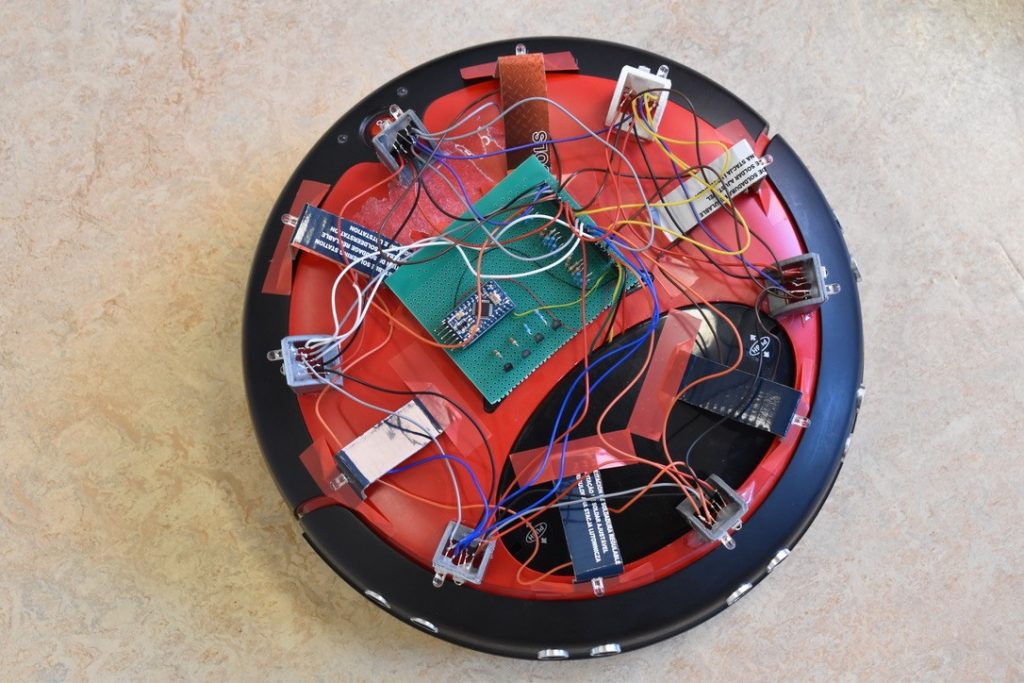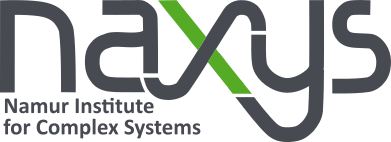Optimization algorithms, artificial intelligence & robotics (AI)

This research pole deals with optimization algorithms, artificial intelligence and robotics.
The Robotics Lab, created in 2020, initiates an interdisciplinary domain of research which identifies in robots an important methodological tool to study complex systems. The activity of the Lab has been developed along three main axes: interdisciplinary Science, Education and outreaching activities, Art.
The research on optimization algorithms includes the development and the application of different types of algorithms (deterministic and evolutionary), considering both theoretical and software aspects, to address medium to large-scale unconstrained and constrained optimization problems that are computationally expensive, due for instance to their size, to their complexity, to black-box and expensive simulations and/or to the lack of available information.
Part of these algorithms use derivatives, other are derivative-free or even objective-function free. The evolutionary algorithms, based on natural selection strategies and for which one takes advantage of the computational resources of high-performance computing systems, also tackle the handling of mixed variables, among which categorical ones.
Keywords: Optimization Algorithms, Evolutionary Computing, Neural Networks, Artificial Intelligence, Evolutionary and Swarm Robotics, Machine learning, Derivative-Free Optimization, Objective-Function Free Optimization, Complexity analysis, Predictive Maintenance
Contact: Alexandre Mayer, Timoteo Carletti, Annick Sartenaer, Philippe Toint and Elio Tuci
Relevant references:
- Njougouo T., Reina A., Tuci E., Carletti T., On the impact of zealots in a population of susceptible agents in a best-of-n problem within a heterogeneous network, Physica A: Statistical Mechanics and its Applications, 655, 130198, 2024
- Maitre G., Martinot D., Tuci E., On the Design of Deep Learning-Based Control Algorithms for Visually Guided UAVs Engaged in Power Tower Inspection Tasks, Front. Robot. AI, Sec. Robotic Control Systems, Vol. 11, 2024
- Reina A., Njougouo T., Tuci E., Carletti T., Speed-accuracy trade-offs in best-of-𝑛 collective decision making through heterogeneous mean-field modelling, Phys. Rev. E 109, 054307, 2024
- Almansoori A., Alkilabi M., Tuci E., On the evolution of adaptable and scalable mechanisms for collective decision-making in a swarm of robots, Swarm Intelligence 18, 79–99, 2024
- Vellinger A., Antonic N., Tuci E., Hybrid Modeling of Stimuli-Based and Density-Induced Aggregation in C. elegans, The 2024 Conference on Artificial Life (ALife), 2024, MIT
- Gratton, S., Toint, P. L., Adaptive regularization minimization algorithms with nonsmooth norms, IMA Journal of Numerical Analysis. 43, 2, p. 920-949, 2023
- Gratton, S., Jerad, S., Toint, P., Convergence properties of an Objective-Function-Free Optimization regularization algorithm, including an 0(epsilon^{-3/2}) complexity bound, SIAM Journal on Optimization. 33, 3, p. 1621-1646, 2023

